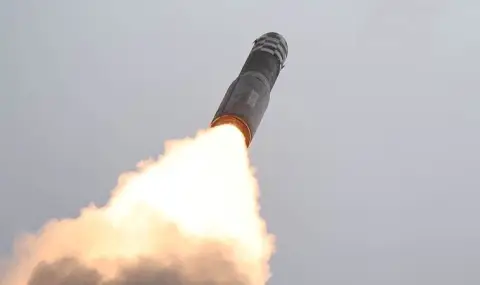Iran and Israel have traded attacks and threats in recent weeks, raising fears of full-scale war between the arch-Middle East rivals.
Israel launched an attack on Iran on April 19, almost a week after an unprecedented drone and missile attack by Tehran on April 13. Iran's attack was in response to a suspected Israeli airstrike that killed seven Iranian commanders in Syria on April 1.
If the two sides were to engage in full-scale war, which one would be in the better position?
Radio Farda, the Iranian service of Radio Free Europe, sought an answer to this question from military experts. According to them, in the event of a direct conflict, Israel would have the military superiority, both defensively and offensively. However, they warn that the threat posed by Iran's drones and missiles should not be underestimated.
Due to decades of sanctions limiting the supply of weapons, Tehran has invested heavily in developing domestic weapons programs. As a result, the country has an entire arsenal of cheap but effective drones and more advanced ballistic missiles.
In the words of John Krzyzaniak, a research associate at the Wisconsin Project on Nuclear Arms Control, Iran's missiles "pose a serious threat" for Israel. At the same time, drones can "wreak havoc on the civilian population" if launched in large numbers.
Jeremy Binney, a Middle East defense specialist at the military intelligence firm Janes, commented that Israel's defense systems "performed well" against Iranian missiles.
However, he specified that the "main facto" for this success seems to have been the technical state of Tehran's weapons. According to US intelligence, about half of the Iranian missiles have been damaged either during launch or during flight.
The Israeli retaliatory attack on April 19 appeared to expose a vulnerability in Iranian defenses. Tehran announced that small quadcopters were used, suggesting that the attack was carried out from Iranian territory.
Military experts believe that Israel's advanced fighter jets give the country air superiority. However, the lack of in-flight charging is a problem for Tel Aviv. Additionally, Israel would need permission to cross the airspace of several countries to reach Iran.
Experts predict that if war breaks out, the Israeli military is likely to deploy long-range missiles against Iran, and Tehran's air defenses have so far not been tested in combat.
Against Israel's military advantage, Iran will likely continue to use unconventional means of warfare and its asymmetric capabilities. This includes the so-called The "axis of resistance", the Tehran-backed network of rebel groups and militias that help it oppose Tel Aviv.
Nevertheless, Tel Aviv retains military superiority.
Besides Israel's operational and intelligence advantage, the country also has another trump card. It is widely believed that Tel Aviv possesses nuclear weapons. The Washington-based "Nuclear Threat Initiative" (NTI) estimates that Israel has about 90 nuclear warheads.
During its attack on April 13, Iran fired more than 300 drones, cruise missiles and ballistic missiles at Israel. Tehran claims it did not use its most advanced weapons. The attack appeared to be more symbolic and apparently not intended to cause significant damage or casualties.
Israel announced that almost all drones and missiles had been intercepted with the help of the US, UK and Jordan. A few rockets did get through Israeli air defenses and hit an airbase, causing minor damage.
According to Fabian Hintz, a research fellow at the International Institute for Strategic Studies (IISS), launching more than 100 ballistic missiles simultaneously is laborious because of the complex logistics and manpower required.
"I'm actually not sure if it's ever been done during a war, and it makes me wonder how much bigger [Iranian attacks] could get,'' Hintz told Radio Farda.
